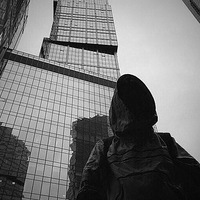
4^X^2+128=3^(1-X^2)*12^X^2
 0
0
 0
0
Ответы на вопрос
 Внимание! Ответы на вопросы дают живые люди. Они могут содержать ошибочную информацию, заблуждения, а также ответы могут быть сгенерированы нейросетями. Будьте внимательны. Если вы уверены, что ответ неверный, нажмите кнопку "Пожаловаться" под ответом.
Внимание! Ответы на вопросы дают живые люди. Они могут содержать ошибочную информацию, заблуждения, а также ответы могут быть сгенерированы нейросетями. Будьте внимательны. Если вы уверены, что ответ неверный, нажмите кнопку "Пожаловаться" под ответом.

Ответ:
Объяснение:
4^X^2+2^7=3/3^X^2*12^X^2
4^X^2+2^7=3/3^X^2*3^X^2*4^X^2
4^X^2+2^7=3*4^X^2
-2*4^X^2=-2^7
4^X^2=2^6
4^X^2=4^3
x^2=3
x= √3 x= -√3
 0
0
 0
0

To solve the equation 4^(X^2) + 128 = 3^(1 - X^2) * 12^(X^2), we'll first attempt to simplify it by recognizing that 12 can be expressed as 4 * 3:
4^(X^2) + 128 = 3^(1 - X^2) * (4 * 3)^(X^2)
Now, let's express 128 as a power of 2:
4^(X^2) + 2^7 = 3^(1 - X^2) * (4 * 3)^(X^2)
Now, we can rewrite 2^7 as 4^2:
4^(X^2) + 4^2 = 3^(1 - X^2) * (4 * 3)^(X^2)
Using the properties of exponents, (4 * 3)^(X^2) can be simplified as 4^(X^2) * 3^(X^2):
4^(X^2) + 4^2 = 3^(1 - X^2) * 4^(X^2) * 3^(X^2)
Now, we can cancel out the common factor of 4^(X^2) from both sides:
4^2 = 3^(1 - X^2) * 3^(X^2)
Next, use the property that a^(m) * a^(n) = a^(m + n):
4^2 = 3^(1 - X^2 + X^2)
Simplify the exponents:
16 = 3^1
Since 3^1 equals 3, we get:
16 = 3
The equation is a contradiction, and there are no real solutions for X that satisfy the original equation. The reason for this is that the left-hand side of the equation (16) is always greater than the right-hand side (3). Therefore, there are no solutions for X that make the equation valid.
 0
0
 0
0
Похожие вопросы
Топ вопросов за вчера в категории Алгебра
Последние заданные вопросы в категории Алгебра
-
Математика
-
Литература
-
Алгебра
-
Русский язык
-
Геометрия
-
Английский язык
-
Химия
-
Физика
-
Биология
-
Другие предметы
-
История
-
Обществознание
-
Окружающий мир
-
География
-
Українська мова
-
Информатика
-
Українська література
-
Қазақ тiлi
-
Экономика
-
Музыка
-
Право
-
Беларуская мова
-
Французский язык
-
Немецкий язык
-
МХК
-
ОБЖ
-
Психология
-
Физкультура и спорт
-
Астрономия
-
Кыргыз тили
-
Оʻzbek tili


























